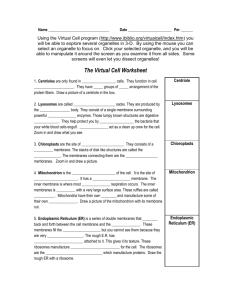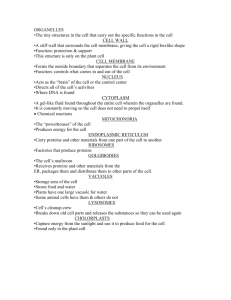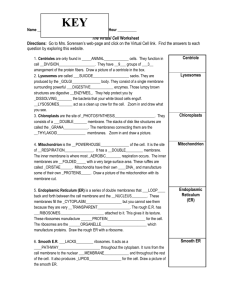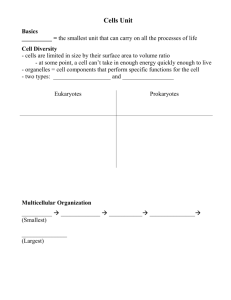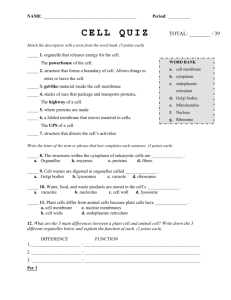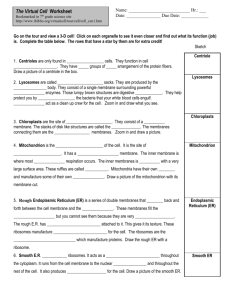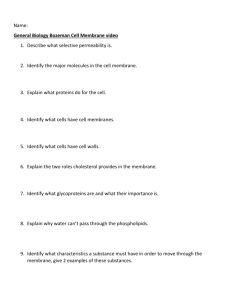Cell Structure Worksheet Answer Key - High School Biology
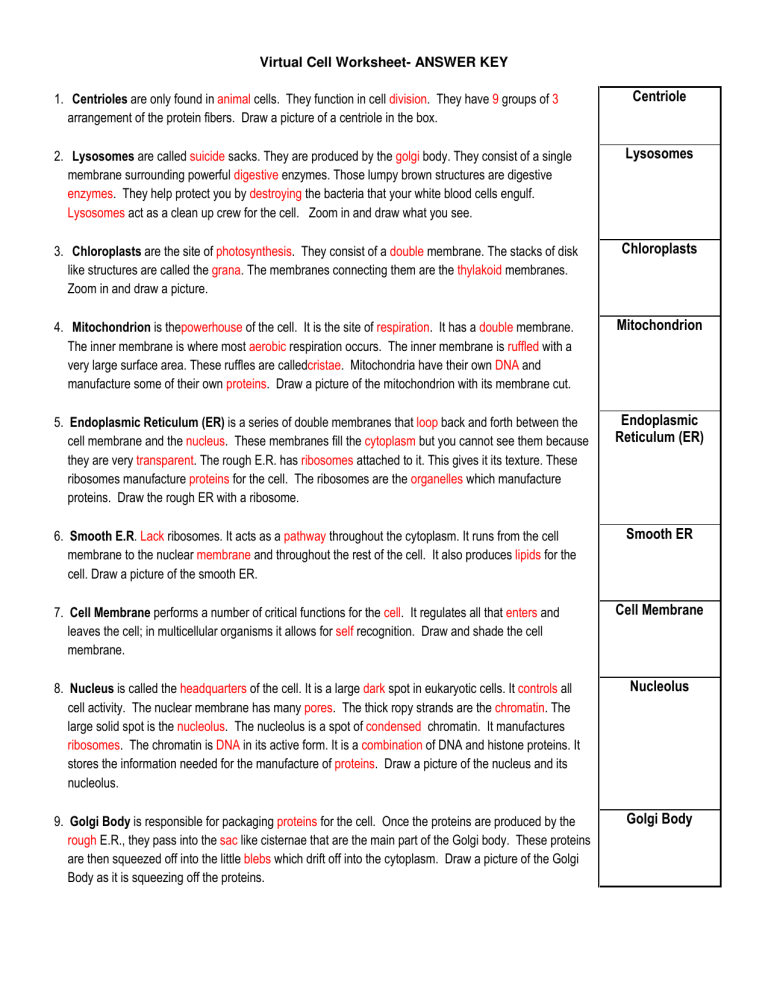
Virtual Cell Worksheet- ANSWER KEY
1.
Centrioles are only found in animal cells. They function in cell division . They have 9 groups of 3 arrangement of the protein fibers. Draw a picture of a centriole in the box.
2.
Lysosomes are called suicide sacks. They are produced by the golgi body. They consist of a single membrane surrounding powerful digestive enzymes. Those lumpy brown structures are digestive enzymes . They help protect you by destroying the bacteria that your white blood cells engulf.
Lysosomes act as a clean up crew for the cell. Zoom in and draw what you see.
3.
Chloroplasts are the site of photosynthesis . They consist of a double membrane. The stacks of disk like structures are called the grana . The membranes connecting them are the thylakoid membranes.
Zoom in and draw a picture.
4.
Mitochondrion is the powerhouse of the cell. It is the site of respiration . It has a double membrane.
The inner membrane is where most aerobic respiration occurs. The inner membrane is ruffled with a very large surface area. These ruffles are called cristae . Mitochondria have their own DNA and manufacture some of their own proteins . Draw a picture of the mitochondrion with its membrane cut.
5.
Endoplasmic Reticulum (ER) is a series of double membranes that loop back and forth between the cell membrane and the nucleus . These membranes fill the cytoplasm but you cannot see them because they are very transparent . The rough E.R. has ribosomes attached to it. This gives it its texture. These ribosomes manufacture proteins for the cell. The ribosomes are the organelles which manufacture proteins. Draw the rough ER with a ribosome.
6.
Smooth E.R
. Lack ribosomes. It acts as a pathway throughout the cytoplasm. It runs from the cell membrane to the nuclear membrane and throughout the rest of the cell. It also produces lipids for the cell. Draw a picture of the smooth ER.
7.
Cell Membrane performs a number of critical functions for the cell . It regulates all that enters and leaves the cell; in multicellular organisms it allows for self recognition. Draw and shade the cell membrane.
8.
Nucleus is called the headquarters of the cell. It is a large dark spot in eukaryotic cells. It controls all cell activity. The nuclear membrane has many pores . The thick ropy strands are the chromatin . The large solid spot is the nucleolus . The nucleolus is a spot of condensed chromatin. It manufactures ribosomes . The chromatin is DNA in its active form. It is a combination of DNA and histone proteins. It stores the information needed for the manufacture of proteins . Draw a picture of the nucleus and its nucleolus.
9.
Golgi Body is responsible for packaging proteins for the cell. Once the proteins are produced by the rough E.R., they pass into the sac like cisternae that are the main part of the Golgi body. These proteins are then squeezed off into the little blebs which drift off into the cytoplasm. Draw a picture of the Golgi
Body as it is squeezing off the proteins.

